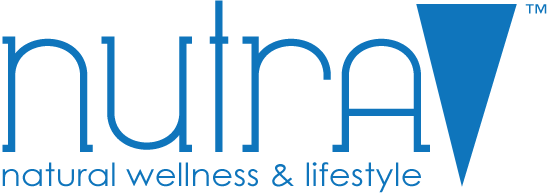Vitamin B3 Overview and Uses
Vitamin B3, or niacin, is a water soluble vitamin known to be crucial in food processing, helping in turning food into usable energy [5]. Being water soluble, any excess amount present can be easily taken out through urination, thereby reducing any chances of niacin build up in the body. Niacin helps in converting nutrients into energy, form and repair DNA, and produce antioxidant effects as well [4].
There are two common forms of niacin, nicotinic acid and nicotinamide. Looking closer, it is the amino acid tryptophan that is responsible for converting into nicotinamide [4].
Niacin has been found to reduce LDL (“bad cholesterol”) while increasing HDL (“good cholesterol”). Additionally, it has shown to produce improvements in coronary artery disease as well [2].
Recommended Intakes
Based on the recommended intakes set by the Food and Nutrition Board (FNB) and presented by the National Institutes of Health (NIH), this table shows the Adequate Intakes for niacin (vitamin B3). Adequate Intake (AI) is the intake that is needed to ensure nutritional adequacy. Specifically for niacin, it is measured in milligrams of niacin equivalents (NE) [5].
- One NE = 1mg of niacin or 60mg of tryptophan [5].
Sources of Vitamin B3
Food sources [1]:
- Red meat
- Chicken
- Fish
- Peanuts
- Whear
- Barley
- Coffee
Supplements:
Supplements are available in multivitamin products, in the form of nicotinic acid / nicotinamide [4]. When the amount of supplement is more than the RDA, it can cause unpleasant side effects such as skin flushing [5].
**nicotinamide does not produce skin flushing due to its chemical structure**
Prescription:
According to Mayo Clinic, niacin prescription could potentially benefit those with high cholesterol, who are unable to control it through diet, statin (group of drugs that reduce fat), and exercise [3].
B3 Deficiency and Safety
Safety [3]:
When taken in safe, appropriate amounts (within RDA range) or as per prescribed, niacin is safe. But high doses (2,000 to 6,000 mg of niacin a day) can lead to:
- Skin flushing
- Rapid heartbeat
- Nausea and vomiting
- Abdominal pain
- Itching
- Diarrhea
- Liver damage
Deficiency [5]:
- Severe deficiency leads to pellagra (pigmented rash or brown discoloration on exposed skin).
- Risk of deficiency is high among:
- Malnourished individuals
- Individuals with Hartnup disease -- rare genetic disorder that involves the disruption of tryptophan absorption in the small intestine, and increases loss of it in the urine
- This leads to less available tryptophan available to be converted to niacin.
- Those with carcinoid syndrome -- caused by slow growing tumors in the GI tract. Tryptophan is oxidized here and as a result, is not metabolized to niacin.
- Those who have low iron, vitamin B6, and vitamin B2 have trouble converting tryptophan to niacin.
Takeaway
Knowing the importance of vitamin B3 in food processing, it is crucial for us to consume and make sure it is in our diet. While normal consumption of the foods and supplements above yields positive results, excessive consumption can lead to flushing. It is really hard to reach that extreme threshold and most individuals can meet their requirements with simple diet changes!
Reference
- Hill LJ, Williams AC. Meat Intake and the Dose of Vitamin B3 – Nicotinamide: Cause of the Causes of Disease Transitions, Health Divides, and Health Futures? International Journal of Tryptophan Research. 2017;10:117864691770466.
- McKenney J. New Perspectives on the Use of Niacin in the Treatment of Lipid Disorders. Archives of Internal Medicine. 2004;164(7):697.
- Niacin [Internet]. Mayo Clinic. Mayo Foundation for Medical Education and Research; 2020 [cited 2021Feb12]. Available from: https://www.mayoclinic.org/drugs-supplements-niacin/art-20364984
- Niacin – Vitamin B3 [Internet]. The Nutrition Source. 2020 [cited 2021Feb12]. Available from: https://www.hsph.harvard.edu/nutritionsource/niacin-vitamin-b3/
- Office of Dietary Supplements - Niacin [Internet]. NIH Office of Dietary Supplements. U.S. Department of Health and Human Services; [cited 2021Feb12]. Available from: https://ods.od.nih.gov/factsheets/Niacin-HealthProfessional/






